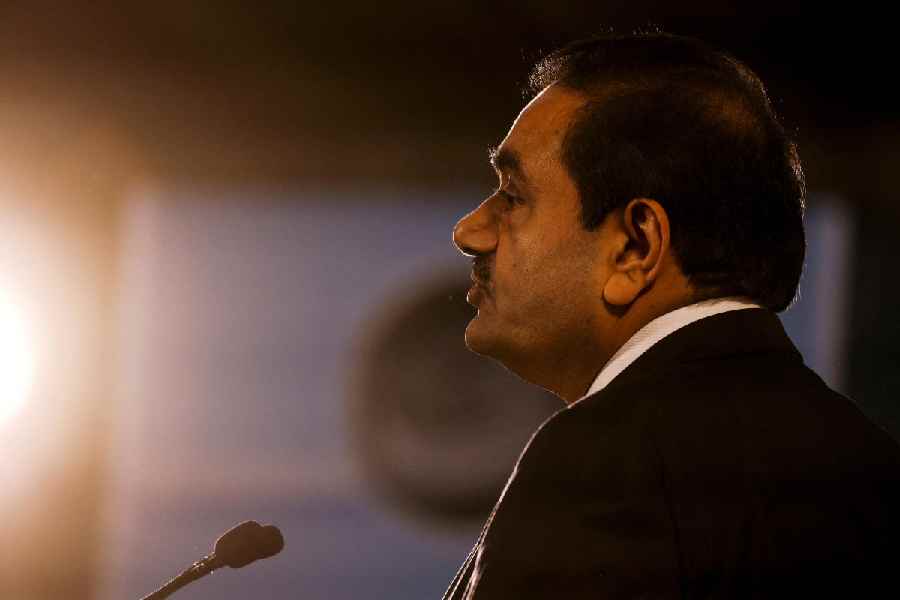The Adanis have come out with all guns blazing.
Issuing a strong rebuttal to the criminal indictment filed by the US Department of Justice on October 24 but made public less than a week ago, the Adani group claimed that Gautam Adani, his nephew Sagar Adani and key group executive Vneet Jaain had not been accused of bribery at all.
The startling claim appeared to fly in the face of the indictment that had insinuated that the Adanis were part of the conspiracy to hand out bribes worth $265 billion (₹2,029 crore, based on the rupee-dollar conversion rate in April 2022) to a number of government officials in five states to induce them to get state-owned electricity distribution companies to sign power purchase agreements with Solar Energy Corporation of India (SECI).
Adani Green Energy and its US affiliate Azure Power Global had received fiscal incentives from SECI to create solar generation capacity of 12 gigawatts (GW). These units were to supply power to SECI which would then sell it on to the discoms.
“Gautam Adani, Sagar Adani (executive director of Adani Green Energy or AGEL) and Vneet Jaain (managing director of AGEL) have not been charged with any violation of the FCPA in the counts set forth in the indictment of the US Department of Justice (DoJ) or the civil complaint of the US Securities and Exchange Commission (SEC),” Adani Green Energy said in a regulatory filing.
The Foreign Corrupt Practices Act (FCPA), enacted in 1997, empowers US authorities and regulators to go after bribe givers in other jurisdictions if it is proven that they have nexus with the US either through business operations, or commercial and financial transactions.
AGEL said the three Adani directors were charged on only three counts: alleged securities fraud conspiracy, alleged wire fraud conspiracy, and alleged securities fraud. These relate to syndicated loans worth $2 billion raised from international financial institutions and US-based asset management companies, and another $1 billion through US dollar bonds that were sold to investors in the US.
The prospectus for these bond issues had carried specific assurances from the Adanis that they had neither paid nor intended to pay bribes.
The DoJ indictment contains two serious charges: Count 1 on the conspiracy to violate the FCPA by providing bribes, and Count 5 pertaining to the destruction of evidence. The Adanis claimed that they had not been specifically named under these counts. They also said the indictment had not specified any quantum of fine or penalty.
The SEC had said in a statement on November 20 that it had charged Gautam Adani, Sagar Adani, and Cyril Cabanes, an executive of Azure Power Global Ltd, for “conduct arising out of a massive bribery scheme”.
It alleged that the “bribery scheme was orchestrated to enable the two renewable energy companies to capitalise on a multi-billion-dollar solar energy project that the companies had been awarded by the Indian government’’.
Legal eagles
Former attorney-general Mukul Rohatgi also picked holes in the US indictment, arguing that the Adanis had not been charged with the serious offences of bribery and destruction of evidence.
“It is very important to note that Count 1 and Count 5 are more important than the others. But neither in Count 1 or Count 5 is Adani or his nephew charged. This is like a chargesheet. It charges individuals for doing specific acts,” he said.
“The Adanis are not named; some other people are named,” Rohatgi said, overlooking the fact that they were executives of the Adani’s Canadian partner who together ran Azure Power Global in the US.
Separately, Supreme Court counsel Mahesh Jethmalani said the indictment itself was part of a “deep state conspiracy” to destroy the Adani group.
“It clearly smacks of malafide motives,” he added.

